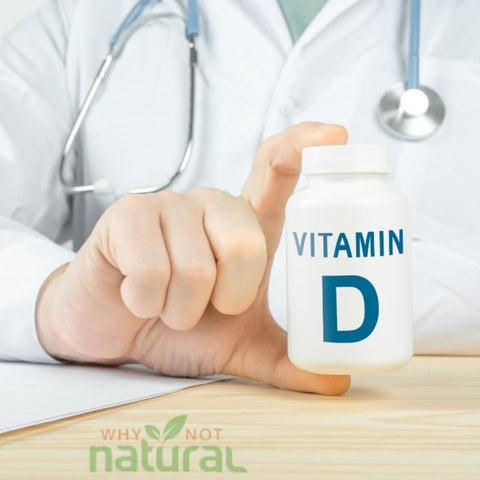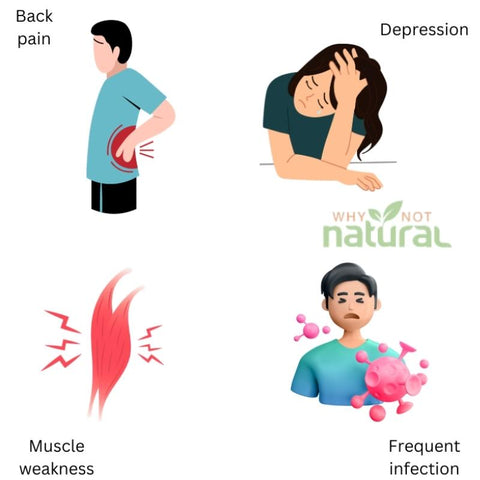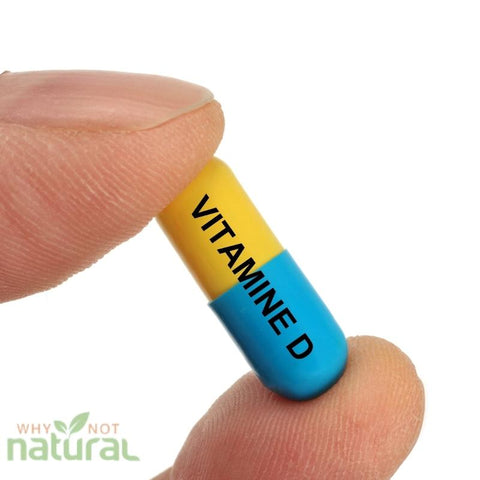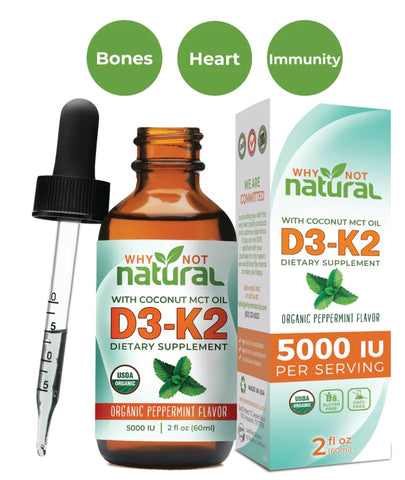Vitamin D deficiency makes the cell’s powerhouses (which produce energy) less efficient, resulting in muscle weakness that can cause fatigue. On the other hand, vitamin D supplementation improves mitochondrial function, improving cellular energy production and helping to fight fatigue.
True, no one is immune to tiredness. We all sometimes feel tired. But when your rate of tiredness shifts from “sometimes” to “always” and does not go away after a good sleep or rest, there may be cause for concern.
It’s no secret that nutrition deficiencies cause various health issues, including fatigue. Thus, people often wonder whether vitamin D deficiency causes fatigue.
This article will answer this question. We’ll examine the scientific evidence on whether low vitamin D levels can cause fatigue. We’ll also look at other causes of fatigue, how to prevent it, and more.
Does fatigue indicate a vitamin D deficiency?
Fatigue (which is defined as extreme and persistent tiredness) is a common symptom and can have various causes, ranging from medical conditions to nutritional deficiency, such as vitamin D deficiency.
So, a vitamin D deficiency can be the culprit of prolonged bouts of fatigue.
Scientific research shows that fatigue can be a sign of vitamin D deficiency.
A research from Newcastle University reports that muscle fatigue is a common symptom of vitamin D-deficient patients.
A study investigating how low vitamin D levels impact the quality of life found that women who have vitamin D deficiency are more likely to report fatigue, weakness, and non-specific pain.
What are the common characteristics of vitamin D deficiency fatigue?
When fatigue is caused by vitamin D deficiency, it may be accompanied by several other symptoms of vitamin D deficiency. That is, vitamin D deficiency fatigue will come with one or more of the following:
- General weakness
- Muscle pain
- Bone pain
- Chronic pain
- Mood changes
- Lowered immune function (falling sick easily).
What are other causes of fatigue?
Besides vitamin D deficiency, other causes of fatigue include:
Nutrient deficiencies
Lack of nutrients like vitamin B12, magnesium, and iron can also cause fatigue.
Let’s discuss them in detail.
Vitamin B12 deficiency
Vitamin B12 helps convert the food we eat into ATP (the energy molecule of the body). Thus, not having enough of it means the body cannot convert food into energy, causing low energy levels.
The Why Not Natural vitamin B12 supplement is perfect for natural energy, as it packs the most bioavailable form of magnesium in high potency servings.
Magnesium deficiency
After ATP is produced, it must bind with magnesium to become biologically active. Thus, magnesium deficiency means ATP cannot work to provide your body with energy, resulting in low energy levels.
The 4-in-1 Quadramag Magnesium complex supplement has four forms of magnesium, providing all the magnesium your body needs in the way it best absorbs it.
Also read: Can Magnesium Cause Fatigue? Debunking Myths & Facts
Iron deficiency
Iron is one mineral that carries oxygen to the brain and muscles. Low iron levels mean less oxygen to the muscles, resulting in muscle weakness, tiredness, and fatigue.
Lifestyle causes
Poor lifestyle choices like lack of sleep, lack of physical activity, etc can cause fatigue.
Now, let's explore these factors in greater detail.
- Lack of sleep: Lack of enough sleep is a very obvious cause of fatigue.
- Use of alcohol and drugs: Alcohol slows down the nervous system while drugs stimulate it, disrupting normal sleep patterns and causing fatigue.
- Physical inactivity: Regular exercise improves fitness, boosts energy levels, and helps you sleep. Thus, a sedentary lifestyle can reduce your stamina and lead to fatigue.
- Poor diet: Eating nutritionally poor foods does not provide the body with enough nutrients (fuel) to function, leading to low energy levels and fatigue.
Medical causes
Fatigue is a symptom of many medical conditions. These include anemia, heart disease, thyroid disorders, glandular fever, and flu.
Medications
Antidepressants, antihistamines, and medications for blood pressure can cause drowsiness and fatigue as side effects.
Psychological causes
Studies have shown that psychological factors can cause fatigue. These include:
- Depression: The feelings of sadness, dejection, and hopelessness that characterize depression can make sufferers experience chronic fatigue.
- Anxiety and stress: Stress and anxiety keep the body in overdrive, exhausting the body and resulting in fatigue.
- Grief: Losing a loved one can make one excessively sad, leading to low energy levels and fatigue.
Work-related causes
Different work factors can cause fatigue. These include:
- Workplace stress: Long work hours, heavy workload, hard physical labor at work, conflict with bosses or colleagues, and more can cause exhaustion and fatigue
- Night shifts: The human body is designed to sleep at night, so night shifts disrupt your internal clock, resulting in tiredness and fatigue.
Does vitamin D help with fatigue?

Vitamin D helps with fatigue. Vitamin D improves fatigue by improving mitochondrial function, making the body cells’ power stations more efficient in producing energy.
Mitochondria is the station in body cells where the energy molecule ATP is produced.
Muscle cells use phosphocreatine to make ATP, and the mitochondria replenish this compound.
The time taken to replenish the compound is a measure of mitochondrial efficiency. Studies show that vitamin D leads to faster phosphocreatine replenishment.
By facilitating the replenishment of the energy source used to make ATP, vitamin D improves the efficiency of mitochondria, helping these powerhouses generate more energy for the body.
Different clinical studies also show that vitamin D helps patients with fatigue.
In a 2016 double-blind, randomized, placebo-controlled trial investigating the effect of vitamin D3 on self-perceived fatigue, researchers gave fatigued (but otherwise healthy) people vitamin D or placebo.
They saw that people who took vitamin D significantly improved and concluded that “vitamin D treatment significantly improves fatigue.”
Another study found that 77% of 174 adults with fatigue had vitamin D deficiency, and after five weeks of vitamin D therapy, fatigue symptoms improved in all areas (physical, mental, and emotional health).
You may also like: 11 Incredible Ways Vitamin D Aids Your Body.
How fast does vitamin D help with fatigue?
While vitamin D helps with fatigue, it is not a “magic pill,” so it will not instantly correct vitamin D deficiency and energize you. Correcting a vitamin D deficiency and seeing improved fatigue symptoms can take up to 4 - 6 weeks of consistent supplementation.
Several factors can affect how long it’ll take to see improvements. These include:
- Baseline vitamin D level: The lower your vitamin D levels when you start, the longer it’ll take to correct the deficiency.
- Diet: Vitamin D is fat-soluble and requires dietary fat to be absorbed. So, incorporating omega-3 fatty acid in your diet increases absorption and make it work faster.
- Underlying health condition: Some health conditions (like obesity and inflammatory bowel disease) can hamper the absorption of vitamin D, making it take longer to correct deficiencies.
Other Symptoms of vitamin D deficiency
Besides extreme and persistent tiredness, Vitamin D deficiency symptoms include:

Bone and back pain
Vitamin D maintains bone health by improving the absorption of calcium. Thus, vitamin D deficiency may cause bone pain and related problems. This includes rickets in children, lower back pain in adults, osteoporosis, etc.
Muscle weakness/ pain
The vitamin D receptor is present in the nerve cells that sense pain, meaning the vitamin is involved in the body’s pain signaling pathway. Thus, low levels of vitamin D can result in muscle pain.
Depression
Vitamin D influences mood and mental well-being. So, low levels can cause depression and seasonal affective disorder (SAD).
Frequent infections
Vitamin D supports the immune system. Therefore, low levels of vitamin D will not make your immune system function optimally, making you fall sick easily.
How prevalent is vitamin D deficiency?
Vitamin D deficiency is one of the most common nutritional deficiencies in the world. The National Institutes of Health reports that one out of every four people in the United States has vitamin D deficiency.
Causes of vitamin D deficiency
Several factors can cause Vitamin D deficiency. These include:
Not getting enough vitamin D from our diet
Very few foods have vitamin D naturally. These include fatty fish, egg yolks, and fortified dairy and grain products. Not regularly incorporating these in your diet can lead to vitamin D deficiency.
Not getting enough sunlight
The sun is a natural source of vitamin D. Inadequate sun exposure or using sunscreen while out can limit how much vitamin D you get from sunlight.
Dark skin
People with darker skin have higher melanin, and this pigment reduces the skin’s ability to make vitamin D from sunlight.
Age
As people age, the skin’s ability to produce vitamin D decreases.
Malabsorption disorders
Health conditions that affect nutrient absorption (like Crohn’s disease) will make your body not absorb enough vitamin D even with high intake, leading to deficiency.
Obesity
Vitamin D is fat-soluble, meaning it is stored in fat tissues. So, in people with obesity, vitamin D is sequestered in cells, leading to low amounts circulating in the blood.
Kidney or liver disease
These organs are involved in converting vitamin D into its active form in the body. Diseases affecting these organs impair this conversion, leading to a deficiency.
Certain medications
Some medications (like anticonvulsants and glucocorticoids) interfere with vitamin D absorption or metabolism, leading to low levels of the vitamin in the blood.
Weight loss surgery
Gastric bypass surgery bypasses the part of the bowel where vitamin D is preferentially absorbed. Thus, it impairs vitamin D absorption, causing deficiency.
How is Vitamin D Deficiency detected?
The best way to detect vitamin D deficiency is by doing a blood test to measure the amount of vitamin D in your blood.
Vitamin D exists in the blood in two forms: 25-hydroxy vitamin D (or calcidiol) and 1,25-hydroxy vitamin D (or calcitriol). The most common blood test to detect vitamin D deficiency measures 25-hydroxy vitamin D levels.
- Levels below 12 ng/mL (30 nmol/L) are too low.
- Levels of 20 ng/mL (50 nmol/L) or above are adequate for most people.
- Levels above 50 ng/mL (125 nmol/L) are too high and may cause health problems.
Who is at risk of developing vitamin D deficiency?
People at risk of developing vitamin D deficiency include:
- The Elderly (65 years and above): Age reduces the skin’s ability to produce vitamin D. Plus, aged people tend to be indoors more, reducing their exposure to sunlight.
- Infants, especially those only fed breast milk: Infants do not get enough sunlight, and breast milk has only a small amount of vitamin D.
- Darker people: Melanin, which makes the skin dark, limits the skin’s ability to make vitamin D from sunlight. So, darker people are at greater risk for vitamin D deficiency.
- People with liver and kidney disease: The kidney and liver play crucial roles in activating vitamin D in the body. When these organs are diseased, vitamin D cannot be easily converted to its active form.
People with malabsorption problems
People with malabsorption disorders cannot absorb vitamin D, increasing their risk for deficiency.
Treatment of Vitamin D deficiency
Vitamin D deficiency treatment is aimed at raising vitamin D levels in your blood to adequate levels needed for proper body functioning.
Vitamin D deficiency is commonly treated using a combination of:
- Eating vitamin D-rich foods
- Getting more sunlight
- Taking vitamin D supplements.
How do I boost my Vitamin D level quickly?

The best way to boost your vitamin D level quickly is vitamin D supplementation.
A vitamin D supplement is specifically produced to help you get enough vitamin D when you do not get adequate amounts of this nutrient from your diet and sunlight.
Vitamin D comes in two forms - D3 and D2. The best vitamin D supplements feature vitamin D3, which is the form that is more easily absorbed by the body.
It is recommended to buy the ones with no preservatives, fillers, sugar, or artificial additives, such as the Why Not Natural Vitamin D3 supplement.
How can I prevent vitamin D deficiency?
The best way to prevent having low and insufficient levels of vitamin D is to get enough of the vitamin in your diet and get out more often for more sunlight.
You may also talk with your health provider about the appropriateness of taking supplements to prevent vitamin D deficiency and what dosage they may recommend.
Food sources

Vitamin D-rich foods to incorporate in your diet to prevent this nutrient deficiency include:
- Fatty fish (salmon, tuna, sardines, and mackerel)
- Cow liver
- Egg yolks
- Cod liver oil
- Mushroom
- Fortified foods (like fortified dairy, breakfast cereal, and orange juice).
Mindful sun exposure
Excessive sun exposure can increase your risk for skin cancer. So, be mindful when increasing sun exposure as a means to prevent vitamin D deficiency.
Takeaway: Reach and maintain normal vitamin D levels via supplementation to fight fatigue

Vitamin D is an important vitamin the body needs to stay healthy. When your body does not have adequate vitamin D, you can feel extreme and persistent tiredness - fatigue.
Vitamin D supplementation is the go-to treatment for vitamin D deficiency. This is where Why Not Natural comes in!
Why Not Natural provides 100% natural supplements that work. Our Vitamin D supplements contain no preservatives or fillers and are highly potent, guaranteeing to correct your nutrient deficiency quickly.
They also include the anti-aging nutrient K2 and come with D3, the form of vitamin D that is most readily absorbed by the body.
Want to quickly build up vitamin D levels to fight fatigue and enjoy overall good health? Get the Why Not Natural vitamin D supplement today!
Don't forget to subscribe to our newsletter to learn which supplements to take, how to combine them for maximum benefit, and other health tips to boost your energy and vitality. Plus, discover natural strategies to reduce hormonal imbalances, stress, and anxiety. Click here to get started!

